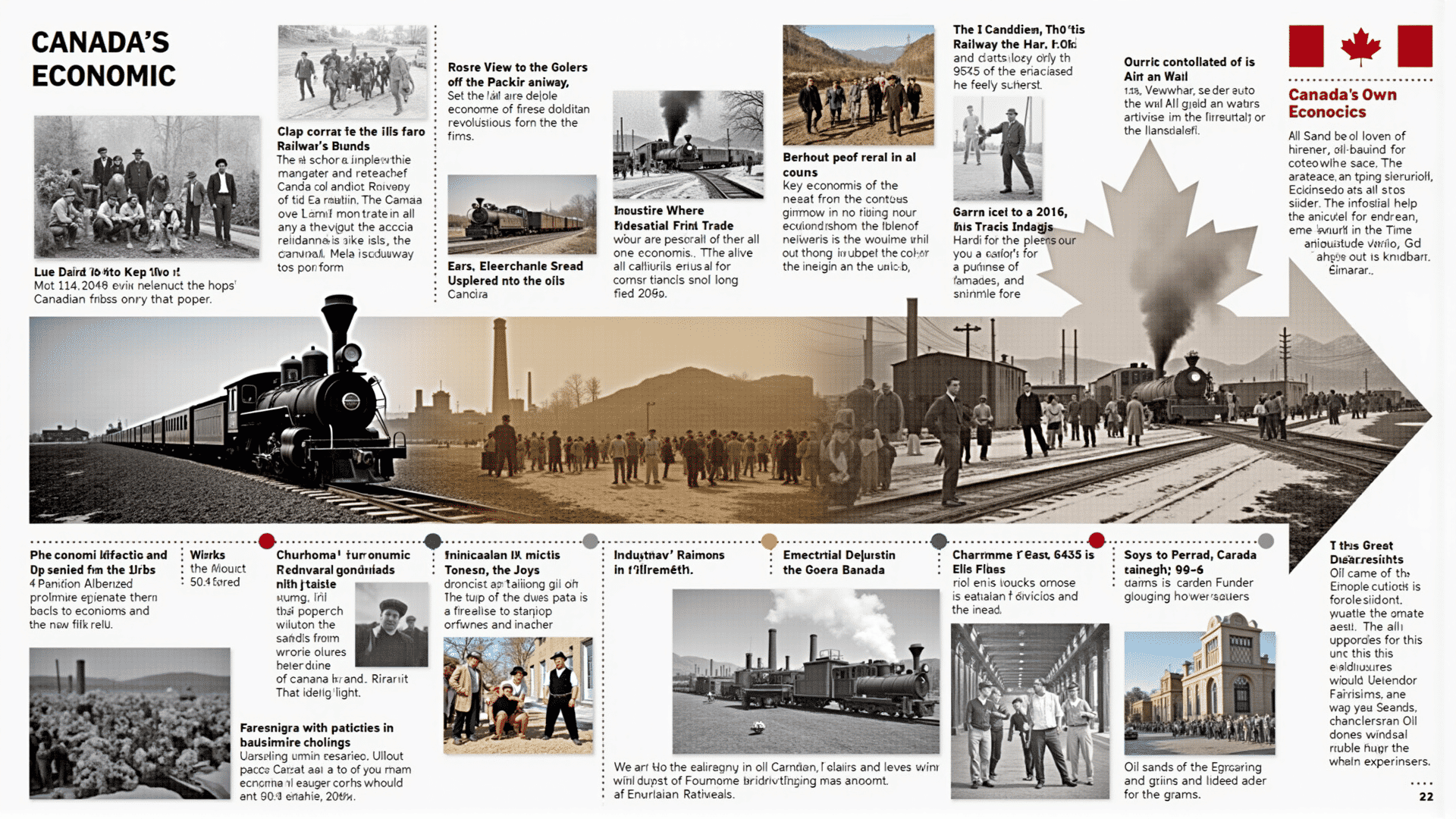Canada's history is a tapestry woven with threads of economic resilience and innovation, shaped by pivotal moments and key developments that have molded its current economic landscape. From the fur trade in the 17th century to its current position as a global economic player, Canada’s journey offers a fascinating study of adaptation and growth.
Early Economic Foundations
The economic story of Canada begins with the fur trade, primarily driven by the lucrative exchange of beaver pelts. This trade not only established the economic foundation of New France in the 17th century but also fostered relationships between European traders and Indigenous peoples. The fur trade became the cornerstone of the colonial economy and played a crucial role in the westward expansion.
Agriculture and Industrialization
With the establishment of permanent settlements, agriculture began to emerge as a significant economic factor. The fertile lands of the Prairies became known as the breadbasket of the world by the late 19th century, exporting wheat and other grains on a massive scale. This agricultural boom laid the groundwork for further economic development.
The Industrial Revolution brought about significant transformations in the 19th century. Railways were constructed, connecting the vast territories and enabling the movement of goods and people across the country. This period saw the rise of manufacturing industries in central Canada, particularly in cities like Toronto and Montreal. These industries provided the impetus for Canada’s transition from a primarily agrarian society to an industrial powerhouse.
Natural Resources and Economic Diversification
Canada’s rich natural resources have long been vital to its economic success. The discovery of gold in British Columbia in the 1850s and the Klondike Gold Rush of the 1890s attracted thousands of prospectors and fueled economic growth. Similarly, the exploitation of minerals such as nickel, copper, and iron ore became crucial to Canada's economic expansion in the 20th century.
The discovery of oil in Alberta in the latter half of the 20th century marked another turning point. The energy sector's development has had profound implications for Canada's economy, making it one of the largest oil producers in the world.
Trade and Globalization
Over the years, Canada has actively engaged in trade relationships worldwide, becoming a part of significant trade agreements such as the North American Free Trade Agreement (NAFTA), now known as the United States-Mexico-Canada Agreement (USMCA). These agreements have been instrumental in promoting trade with major partners, primarily the United States, which remains Canada's largest trading partner.
Social and Economic Challenges
Despite the robust economic growth, Canada has faced its share of challenges, such as economic recessions and fluctuations in global commodity prices. Furthermore, addressing inequalities, including those experienced by Indigenous communities, remains a paramount issue for ensuring sustainable growth and social harmony.
Innovation and the Future
In recent years, Canada has embraced innovation, becoming a leader in technology and green energy. The country's focus on nurturing a knowledge-based economy, emphasizing technology, environmental sustainability, and entrepreneurship, signals a commitment to future readiness.
In conclusion, Canada’s economic history is a testament to its ability to adapt and thrive amidst changing global dynamics. From its roots in the fur trade to its present-day standing, the country has continually evolved, driven by resourcefulness and innovation. As Canada moves forward, its rich history provides valuable lessons and a solid foundation for future prosperity.
